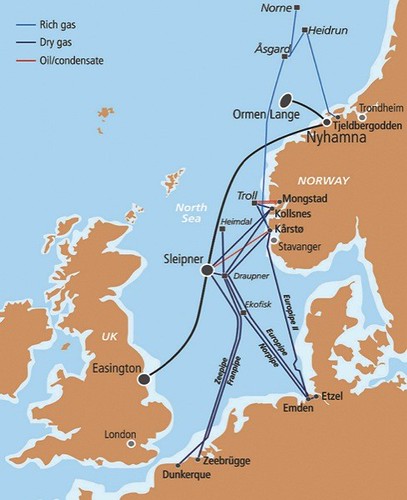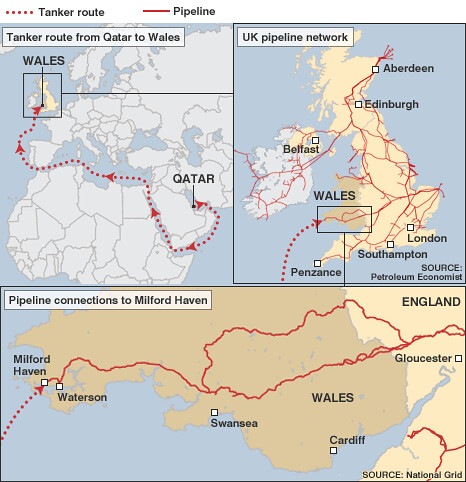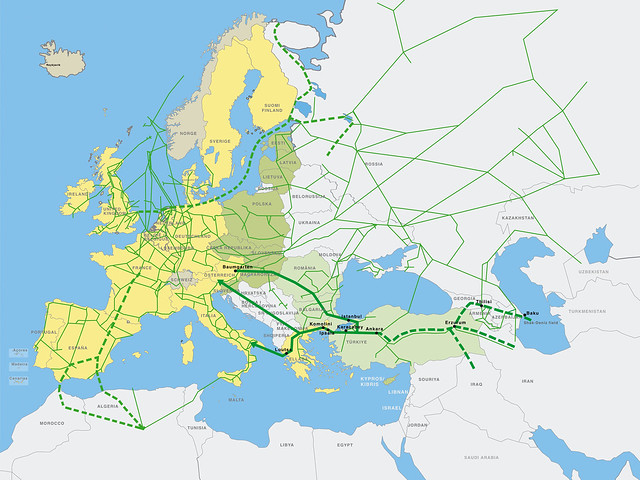HEWITT.MOBI
Tuesday, June 07, 2011
Andrew Clark
The world could be on the brink of a “golden age” of natural gas, propelling consumption of the energy source beyond coal to rival oil as the planet’s favourite fuel by 2035, according to the International Energy Agency.
A gas production boom in China, Australia and the United States, together with a retreat from nuclear generation in nations such as Germany after Japan’s Fukushima disaster, could spark a 50 per cent surge in use of gas to account for a quarter of all energy demand, the agency forecast.
The IEA published its scenario 48 hours ahead of what is likely to be the most politically charged Opec gettogether for decades.
The 12 leading oil-producing nations are facing pressure to increase short-term output to keep crude prices in check — the cost of a barrel of Brent crude was just below $115 yesterday, under this year’s peak of $127 in April but high enough to hurt faltering Western economies.
Arab nations have rarely been more divided, split on how to respond to popular uprisings in Bahrain, which is closely allied to Saudi Arabia, and Libya, which is Africa’s fourth-biggest oil producer. Qatar, a leading Opec member, is participating in the allied bombing campaigns in Libya.
It is unclear who will represent Libya at the Vienna meeting, after the defection of Colonel Gaddafi’s Oil Minister. Shukri Ghanem fled to Italy last week and announced that he was supporting “the choice of young Libyans to fight for a more democratic country”.
Amrita Sen, a commodities analyst at Barclays Capital, said: “It’s not that Opec hasn’t operated in an environment before where countries don’t get along with each other, but it doesn’t make things easier.” Ms Sen believes that Opec needs to raise output by at least three million barrels a day from its present 26.2 million barrels.
Stephen Schork, a prominent US energy analyst, said he anticipated a fraught gathering: “This is going to be one of the most raucuous Opec meetings in a generation. You’d have to go back to the Iran/Iraq war of the 1980s to see a meeting this contentious.”
The IEA, which represents many of Opec’s customer nations, has said there is a “clear, urgent need for additional supplies” of oil, not least because of a 70 per cent drop in output from Libya, and has indicated it could give the green light for Western nations to release strategic stockpiles of oil.
Its long-term prediction of gas’s rise amounts to a warning shot that Opec’s power will not last for ever. The IEA cites an ambitious policy in China to promote gas use plus the spread of environmentally controversial techniques such as hydraulic fracking to release previously untapped sources of gas.
As motor manufacturers respond to high petrol prices, more gas-powered cars, lorries and buses are likely to take to the roads. Nuclear power is facing long-term reverberations from Japan’s tsunami in March, when the Fukushima nuclear plant was damaged. Australia is forecast to become one of the world’s biggest exporters of liquefied natural gas by 2020, catching up with the present leader Qatar.
“We have seen remarkable developments in natural gas markets in recent months,” the IEA’s executive director Nobuo Tanaka said. “There is potential for gas to take on a larger role.”
But he warned that the rise of gas was not necessarily good news in combating global warming. “While natural gas is the ‘cleanest’ fossil fuel, it is still a fossil fuel. Its increased use could muscle out low-carbon fuels, particularly in the wake of Fukushima.”
He said that while global gas reserves were vast, an increase in exploitation of the source would require technological advances, political will and a conducive financial environment. Gas remains more awkward than oil to transport in large volumes.
One of Britain’s largest electricity generators, ScottishPower, underlined its ambition to increase its exposure to gas by setting out plans yesterday for a new gas-fired power station near Bristol, with a generation capacity of between 900 and 1,200 megwatts of energy.
 |
| In The Pipeline |
hewitt.mobi Posted at 1:44 pm |
0 comments
0 Comments:











